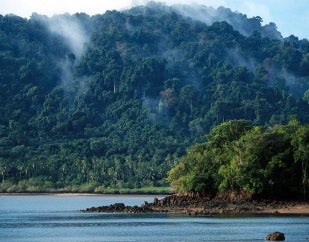First project will go to Panama for search for nature-based products of interest to pharmaceutical and agro-chemicals industries

NPIF is the newest trust fund of the GEF, an international institution that funds environmental projects worldwide. The first approved project will be implemented in Panama with a total budget of $4.4 million, including $1 million from the NPIF, over the next three years. The project supports the discovery of nature-based products for the pharmaceutical and agrochemical industries, including compounds to cure cancer and other tropical diseases. The project will work on transfer of technology with assistance of private sector partners, including the Eisai Inc, Dow AgroScience, and Centauri Technology Corporation. This is a joint-venture involving the Government of Panama, academic and research institutions, and private sector companies. The project will also support increasing capacity of government and research institutions and promote the conservation of genetic resources in marine protected areas. Protecting these marine environments will also benefit local communities that rely on the natural resources of the sea for livelihoods.
"We hope other countries will follow the example of Panama and use this as a new opportunity to sustainably finance biodiversity conservation with involvement of private sector," said Monique Barbut, CEO and Chairperson of the GEF. "These initiatives could further add economic and social value to biodiversity and genetic resources."
The Nagoya Protocol Implementation Fund was created under the GEF to support eligible developing countries in activities related to the early ratification and implementation of the Nagoya Protocol on Access and Benefit Sharing. In October 2010, 193 countries at the Tenth Meeting of the Conference of the Parties to the Convention on Biological Diversity approved this global agreement after years of negotiation. The Nagoya Protocol establishes the ground rules for how nations should cooperate to access and to share the many benefits that come from the sustainable use of genetic resources of all living organisms in a range of pursuits including medicine, food, and cosmetics.
The Government of Japan, acting as the President of the Conference of the Parties to the CBD, proposed the establishment of a new voluntary fund at the GEF. The fund so far has been supported by the generous contribution of the Governments of Japan, Switzerland and Norway.
"Japan appreciates GEF's timely support to approve the first project and jump-start the implementation of this important new fund," said Mr. Tsunao Watanabe, Director-General of the Nature Conservation Bureau, Japan Ministry of Environment. "We expect many more similar projects are developed and effectively support the developing countries under the NPIF."
Contact:
Mr. John Diamond
Senior Communication Officer | Spokesperson
Phone +1 202 458 7953
E-mail: jdiamond@thegef.org
Press Release No: 2012/1
###
About the Global Environment Facility
The Global Environment Facility (GEF) unites 182 countries in partnership with international institutions, civil society organizations (CSOs), and the private sector to address global environmental issues while supporting national sustainable development initiatives. Today the GEF is the largest public funder of projects to improve the global environment. An independently operating financial organization, the GEF provides grants for projects related to biodiversity, climate change, international waters, land degradation, the ozone layer, and persistent organic pollutants.
Since 1991, GEF has achieved a strong track record with developing countries and countries with economies in transition, providing $10 billion in grants and leveraging $47 billion in co-financing for over 2,800 projects in over 168 countries. Through its Small Grants Programme (SGP), the GEF has also made more than 13,000 small grants directly to civil society and community based organizations, totaling $634 million. For more information, visit www.thegef.org.
Stay Connected
Alexandre Pinheiro Rego
Senior Communications Officer
arego@thegef.org